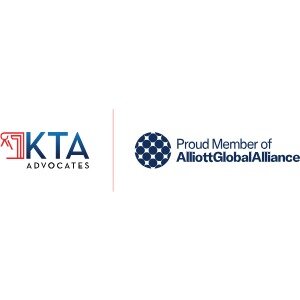Best Creditor Lawyers in Kampala
Share your needs with us, get contacted by law firms.
Free. Takes 2 min.
List of the best lawyers in Kampala, Uganda
About Creditor Law in Kampala, Uganda
Creditor law in Kampala, Uganda, pertains to the rules and regulations governing the rights and liabilities of creditors, typically lenders or sellers, against debtors. This domain of law comprises procedures for pursuing unpaid debts and regulations for fair debt collection. It is centered around national laws such as the Insolvency Act, and also draws aspects from international trade and finance laws applicable in Uganda.
Why You May Need a Lawyer
Various situations may lead you to seek legal advice in the field of creditor law. For instance, if your debtor defaults on loan repayment over a substantial length of time, a legal professional can guide you on the ideal course of action for debt recovery. If you are a creditor facing wrongful accusations by debtors, a lawyer can help you protect your legal rights. In addition, if you require advice concerning International Credit Agreements, you may need a lawyer who is well versed in the relevant laws.
Local Laws Overview
Key aspects of the local laws concerning creditor law in Kampala include provisions under the Insolvency Act of Uganda, which enables creditors to petition for the bankruptcy of a debtor in default. The Act also sets out the ranking or priority of creditors during the insolvency resolution process. Similarly, there’s the Hire Purchase Act that provides guidance on credit arrangements involving the purchase of goods and the Judicature Act that provides for modes of execution of civil judgements including attachment and sale of debtor's property.
Frequently Asked Questions
What are my rights as a creditor?
As a creditor, you have the right to receive payment as per the agreed terms and conditions. In the case of default, the law allows you to take legal action against the debtor.
Can I recover debt from a debtor who has declared bankruptcy?
Yes, through the insolvency resolution process, the liquidator sells the debtor's assets and distributes the proceeds to the creditors in the order set out in the Insolvency Act.
What should I do if a debtor refuses to pay?
If dialogue and negotiations fail, you can resort to legal action. An experienced lawyer can guide you on how to proceed with litigation or arbitration.
What can a lawyer do to help recover my outstanding debts?
A lawyer can issue legal notices to the debtor, negotiate on your behalf, and if necessary, file a lawsuit. They can also guide you through the insolvency resolution process.
Are there any limits on the actions that a creditor can take against a debtor?
Yes. Uganda has guidelines that prohibit unethical debt collection practices such as wrongful public humiliation, workplace harassment, and misleading or threatening communication.
Additional Resources
Some helpful resources include the Uganda Law Society, which can provide a list of accredited lawyers in the field of creditor law and the Uganda Insolvency Practitioners Association, which can guide you on insolvency procedures. You can also refer to the Insolvency Act and Hire Purchase Act under the Laws of Uganda for further understanding.
Next Steps
If you need legal assistance, you should first identify and contact a legal professional experienced in creditor law. They can guide you through your rights as a creditor, actions for debt recovery, negotiation procedures, and how to proceed with litigation or insolvency resolution process, if required.
Lawzana helps you find the best lawyers and law firms in Kampala through a curated and pre-screened list of qualified legal professionals. Our platform offers rankings and detailed profiles of attorneys and law firms, allowing you to compare based on practice areas, including Creditor, experience, and client feedback.
Each profile includes a description of the firm's areas of practice, client reviews, team members and partners, year of establishment, spoken languages, office locations, contact information, social media presence, and any published articles or resources. Most firms on our platform speak English and are experienced in both local and international legal matters.
Get a quote from top-rated law firms in Kampala, Uganda — quickly, securely, and without unnecessary hassle.
Disclaimer:
The information provided on this page is for general informational purposes only and does not constitute legal advice. While we strive to ensure the accuracy and relevance of the content, legal information may change over time, and interpretations of the law can vary. You should always consult with a qualified legal professional for advice specific to your situation.
We disclaim all liability for actions taken or not taken based on the content of this page. If you believe any information is incorrect or outdated, please contact us, and we will review and update it where appropriate.















